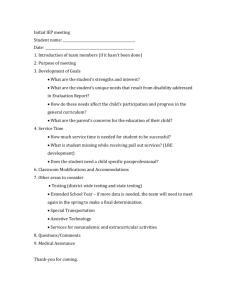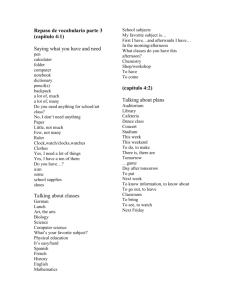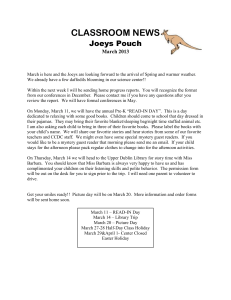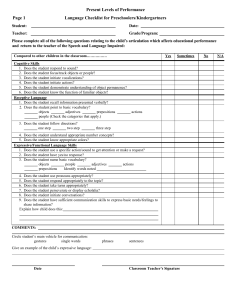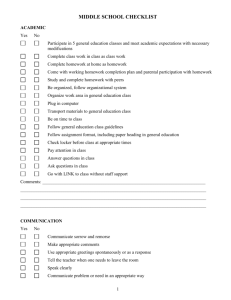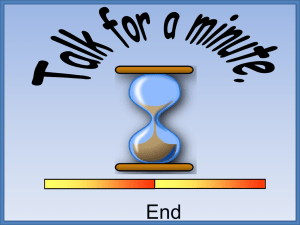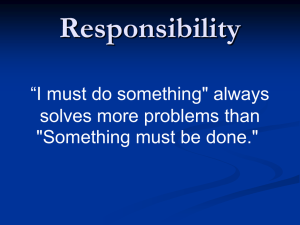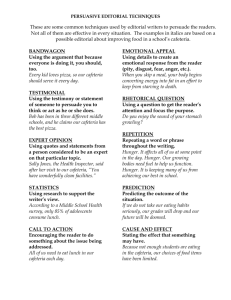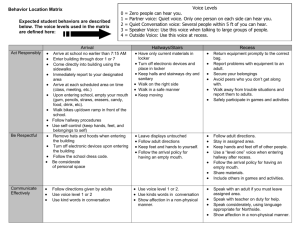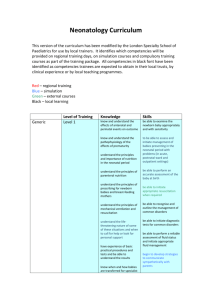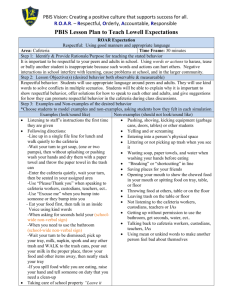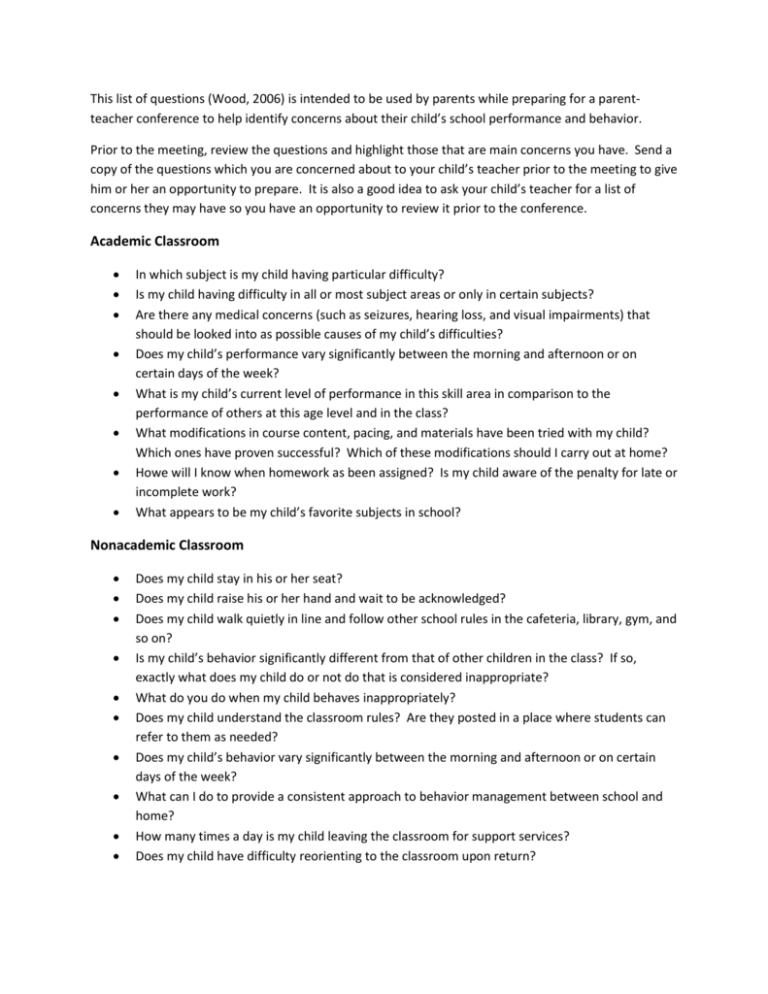
This list of questions (Wood, 2006) is intended to be used by parents while preparing for a parentteacher conference to help identify concerns about their child’s school performance and behavior.
Prior to the meeting, review the questions and highlight those that are main concerns you have. Send a
copy of the questions which you are concerned about to your child’s teacher prior to the meeting to give
him or her an opportunity to prepare. It is also a good idea to ask your child’s teacher for a list of
concerns they may have so you have an opportunity to review it prior to the conference.
Academic Classroom
In which subject is my child having particular difficulty?
Is my child having difficulty in all or most subject areas or only in certain subjects?
Are there any medical concerns (such as seizures, hearing loss, and visual impairments) that
should be looked into as possible causes of my child’s difficulties?
Does my child’s performance vary significantly between the morning and afternoon or on
certain days of the week?
What is my child’s current level of performance in this skill area in comparison to the
performance of others at this age level and in the class?
What modifications in course content, pacing, and materials have been tried with my child?
Which ones have proven successful? Which of these modifications should I carry out at home?
Howe will I know when homework as been assigned? Is my child aware of the penalty for late or
incomplete work?
What appears to be my child’s favorite subjects in school?
Nonacademic Classroom
Does my child stay in his or her seat?
Does my child raise his or her hand and wait to be acknowledged?
Does my child walk quietly in line and follow other school rules in the cafeteria, library, gym, and
so on?
Is my child’s behavior significantly different from that of other children in the class? If so,
exactly what does my child do or not do that is considered inappropriate?
What do you do when my child behaves inappropriately?
Does my child understand the classroom rules? Are they posted in a place where students can
refer to them as needed?
Does my child’s behavior vary significantly between the morning and afternoon or on certain
days of the week?
What can I do to provide a consistent approach to behavior management between school and
home?
How many times a day is my child leaving the classroom for support services?
Does my child have difficulty reorienting to the classroom upon return?
Is my child able to keep track of this or her belongings? Is there a system in place in the
classroom for storing belongings?
What leadership responsibilities does my child have? Are they carried out successfully?
Nonacademic Social
Does my child friends in the classroom?
Does my child initiate contact with other students? Does he or she respond appropriately when
others initiate contact?
Does my child interact appropriately with other students on the playground, in the cafeteria, on
the bus, and during other free times?
Is my child being teased or ridiculed by other students? If so, are there any adjustments we can
encourage in behavior, appearance, or manner to improve this situation?
What are my child’s favorite activities during the school day?
Does my child appear to be happy at school most of the time?
Wood, J. W. (2006). Teaching Students in Inclusive Settings. Upper Saddle River, New Jersey: Pearson
Prentice Hall.

